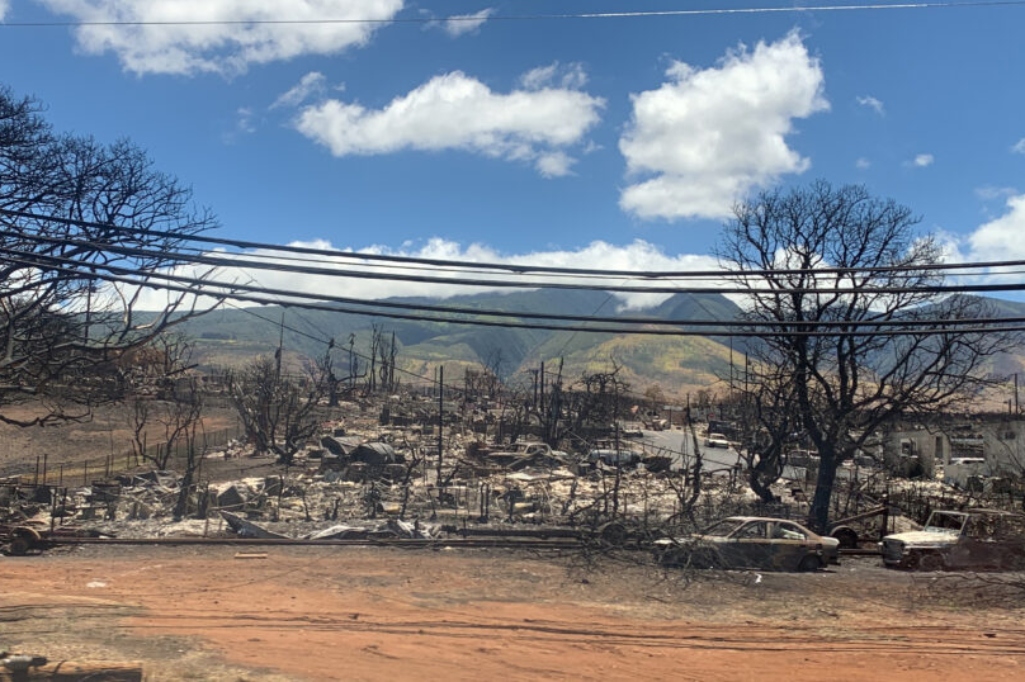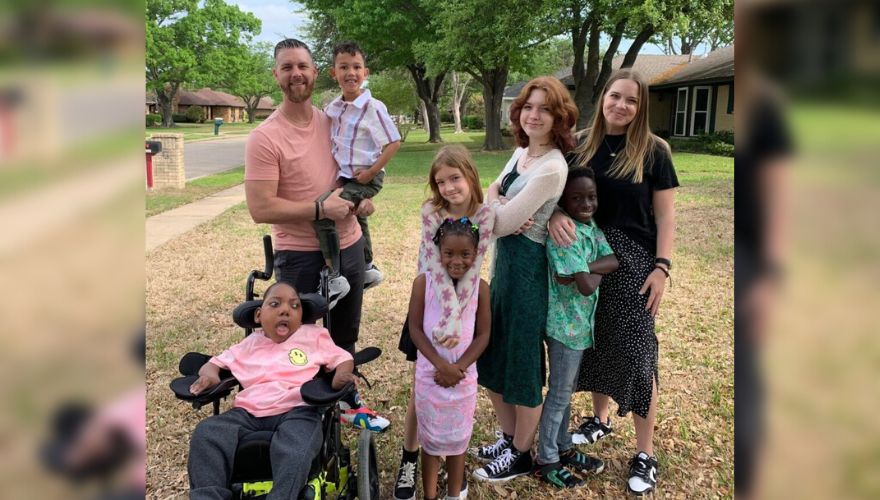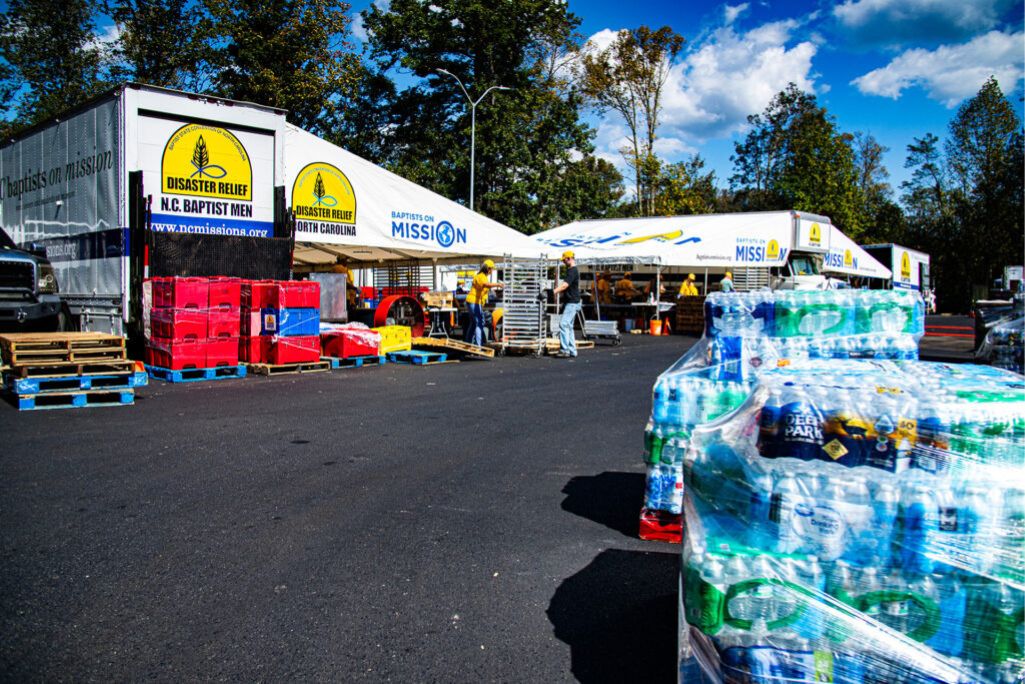
Stoked by winds up to 80 mph, flames engulfed the town of Lahaina and many of its terrified residents with deadly speed. So far, 114 are reported dead, making the wildfire the worst in modern U.S history. Maui’s mayor reported Aug. 21 that 850 people are still unaccounted for.
MAUI, Hawaii (BP) – As the Aug. 8 Maui fires raged out of control in Lahaina, local churches on the island that were outside the burn area immediately began grappling not with whether they would respond but how.
Pastor Jay Haynes of Kahului Baptist Church in Kahului preached a pair of messages of the last two weeks on grief and lament to help his congregation spiritually and emotionally navigate the trauma, including a message on Psalm 42 Aug. 20.
“We’re not going back to normal. There’s not really ‘going back to normal.’ There’s no way to move forward acting like nothing happened, that everything’s fine,” Haynes said. “We’re still going to have various rooms on this property being used as shelters. We’re still going to have rooms being used for storing donations and distributing donations to people who need.”
Stoked by winds up to 80 mph, flames engulfed the town and many of its terrified residents with deadly speed. So far, 114 are reported dead, making the wildfire the worst in modern U.S. history. Maui’s mayor reported Aug. 21 that 850 people are still unaccounted for. Some 2,200 structures were destroyed, causing an estimated $6 billion in damage.
In the immediate aftermath, Haynes, along with fellow pastor Rocky Kotmatsu of Waiehu Community Church in Wailuku, helped deliver supplies on trucks down into Lahaina to help meet the most pressing physical needs of those displaced by the wildfire that consumed nearly the entire town of Lahaina. Haynes’ message Sunday underscored their resolve to continue helping survivors who lost everything.
Valley Isle Fellowship in Wailuku became a staging ground for relief ministries that needed a base of operations, and its pastor Nick Love has been serving in his role as a chaplain to support the efforts of the Hawaii National Guard and U.S. Air Force as they maintain order and utilize cadaver dogs to identify human remains.
The process of searching for bodies is highly specialized and very time-consuming, meaning those carrying out the task have been putting in extremely long hours.
“Hearing their stories has finally started catching up to me,” Love said. “Hearing what they’re seeing and what they’re going through. They’re professional, but it’s difficult on them.”
During the same time, Love, who only came on board in April of this year, has continued leading Valley Isle Fellowship.
Bryant Wright, president of Send Relief, spent the weekend and part of Monday meeting with pastors and other ministry leaders on the island of Maui to encourage those directly impacted as well as those who have been key in responding to the ongoing needs.
“Many of the pastors we’ve been meeting with have been young pastors,” Wright said. “They’re in the midst of leading churches to engage their communities in the fallout of one of the most historic tragedies, not only in Hawaii’s history but in the history of the United States.”
Gay Williams and her husband John have been leading disaster relief efforts for the Hawaii Pacific Baptist Convention (HPBC) as Southern Baptist Disaster Relief (SBDR) volunteers from around the Hawaiian Islands have joined the effort.
“Here on the ground in Maui, we have been working with some of the first responders and other partners in response with their housing,” Williams said. “We are preparing to bring in our teams who will eventually do personal property recovery, or ash sifting, for the homeowners when they are allowed into their properties.”
Williams anticipates that there will be opportunities for SBDR teams from the continental U.S. to serve in the efforts to help residents recover their belongings, such as jewelry or other items, that may have endured the inferno.
On Aug. 21, Send Relief sent a shipment of fire recovery supplies to Maui to assist SBDR teams as they serve families who have lost everything. The shipment left Send Relief’s warehouse in Ashland, Ky., and was packed with protective gear including Tyvek suits, N-95 masks, goggles and more.
Wright, along with Robert Miller, director of regional ministries for the HPBC, began exploring ways to connect churches on the mainland with those on Maui.
“The recovery here will take years as there are thousands of people who have lost loved ones and their homes,” Wright said. “Beyond that, even though Maui and Hawaii remain open for people to visit, there has been an impact on the tourism industry and some have also lost the ability to earn a living. And there will be needs for these churches in Hawaii to meet for weeks, months and years to come, and we want to see mainland churches explore ways to empower the local church for ministry.”
To learn more and support the response, visit SendRelief.org.
(EDITOR’S NOTE – Brandon Elrod writes for the North American Mission Board.)


